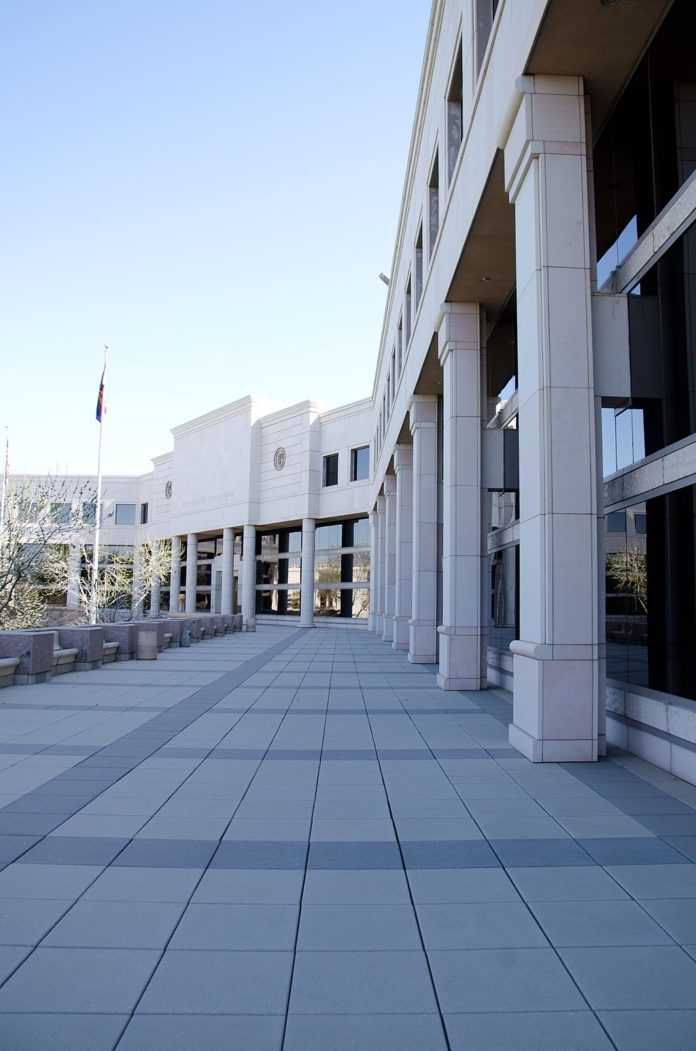
Arizona legislators are taking stock of the potential impact of the state Supreme Court’s decision that lawmakers violated the Arizona Constitution’s requirements that subjects included in each piece of legislation be related and also be expressed in bill titles.
The justices’ Nov. 2 ruling on the constitutionality of budget bills could simplify the Legislature’s work in some ways while possibly extending future legislative sessions by making it harder to cut deals, lawmakers told the Arizona Capitol Times.
“I think it will streamline the budget process, because if bills, be they failed or not even submitted, are no longer admissible to the budget, then that’s one very large area of negotiation that’s removed from the system,” said Rep. John Kavanagh, a Fountain Hills Republican who has been a legislator since 2007.
“If members just resign themselves to the fact that the bill they want can’t pass, then it’ll probably shorten the session,” Kavanagh said. “If members dig in and insist that their bill not be put in the budget but get passed on the (voting) board again, then it could drag the session on. It just depends on how people react to it.”
Sen. J.D. Mesnard, R-Chandler, said he expects to see more bills next year as a result of the court’s decision.
“It’ll probably introduce greater inefficiency in the process and slow things down,” he said.
The 2021 session saw majority Republican leaders struggle to get a few GOP holdouts on board with a large tax cut that Democrats unanimously opposed while other Republicans demanded additions, including policy-related items, as the price of their aye votes.
The final product, approved along party lines, included numerous controversial policies in the budget bills, including a ban on school mask requirements, limits on local governments’ and public universities’ ability to impose COVID-19 mandates, and banning “critical race theory” in public schools.
Education groups sued, arguing that adding policy items to budget bills violated the state Constitution’s title requirement or single-subject rule.
Superior Court Judge Katherine Cooper agreed, and the state high court upheld her.
Sen. Sean Bowie, D-Phoenix, said the ruling might result in a longer session next year because Republicans won’t be able to pack bills with policy measures to get votes.
Republicans could work with Democrats, Bowie said. “But often that seems like it’s always the last option instead of coming earlier in the process, which I would prefer to see.”
Senate President Karen Fann, R-Prescott, said she doesn’t expect the ruling to spur more collaboration across the aisle.
She called the decision a two-edged sword – budget bills can no longer become packages of policy measures but also can’t be used to fix unintended consequences of previously approved legislation.
“We may have to wait an entire year to come back and fix a problem,” she said.
Sen. Rebecca Rios, D-Phoenix, said Republicans added many policy measures to the budget legislation because the policy measures failed as standalone bills with Republicans holding narrow majorities.
“Unfortunately, we’re going to be working with those same slim margins next year, which means there is going to be a lot of arm-twisting I would assume,” Rios said.
While many GOP lawmakers criticized the state court’s decision, Sen. Paul Boyer, R-Glendale, said the ruling was good for the institution, and that his fellow Republicans might come to appreciate it more if Democrats win the majority in the future.
“Our colleagues across the aisle won’t be able to jam stuff through like we’ve been doing,” he said.
Republished with the permission of the Associated Press.













